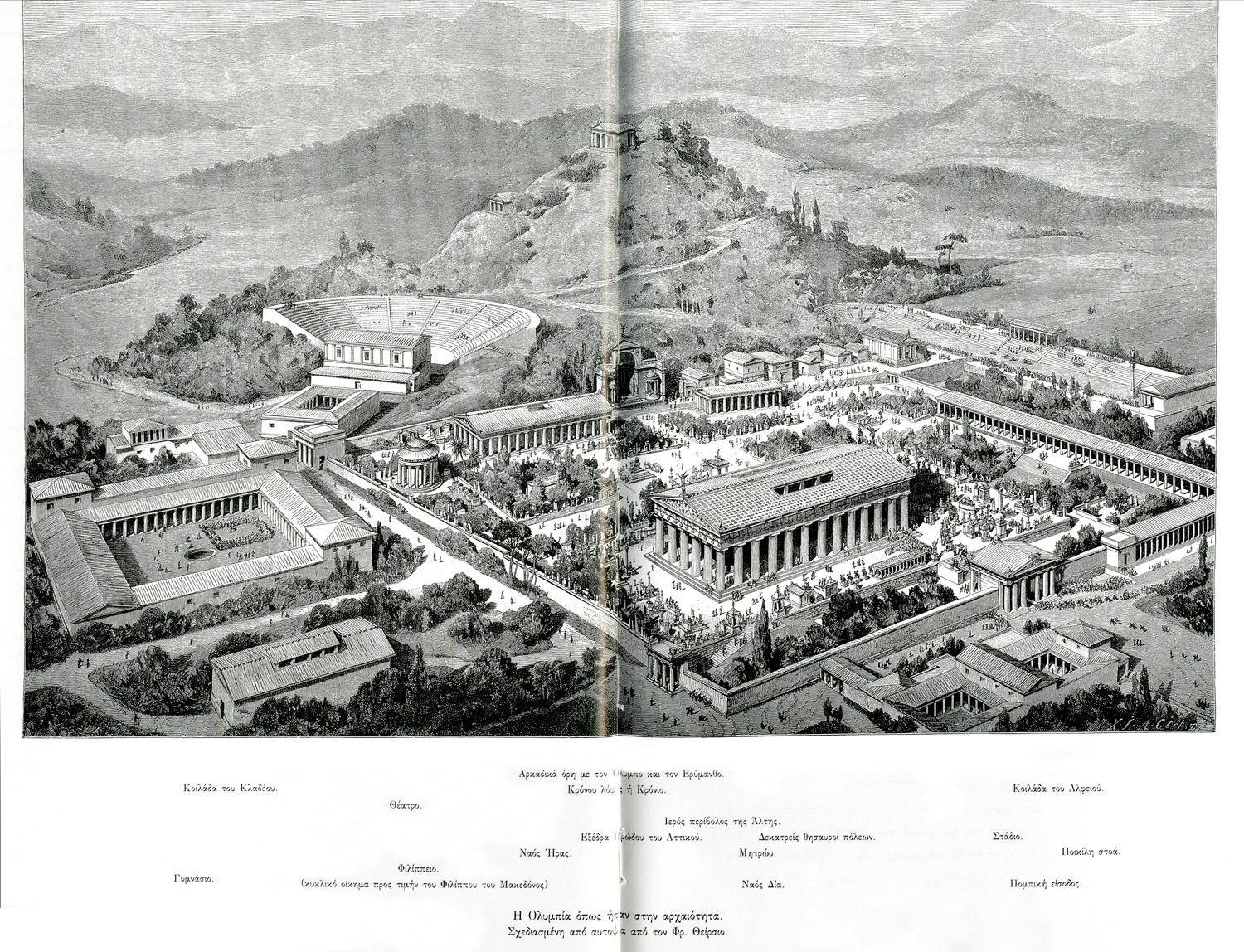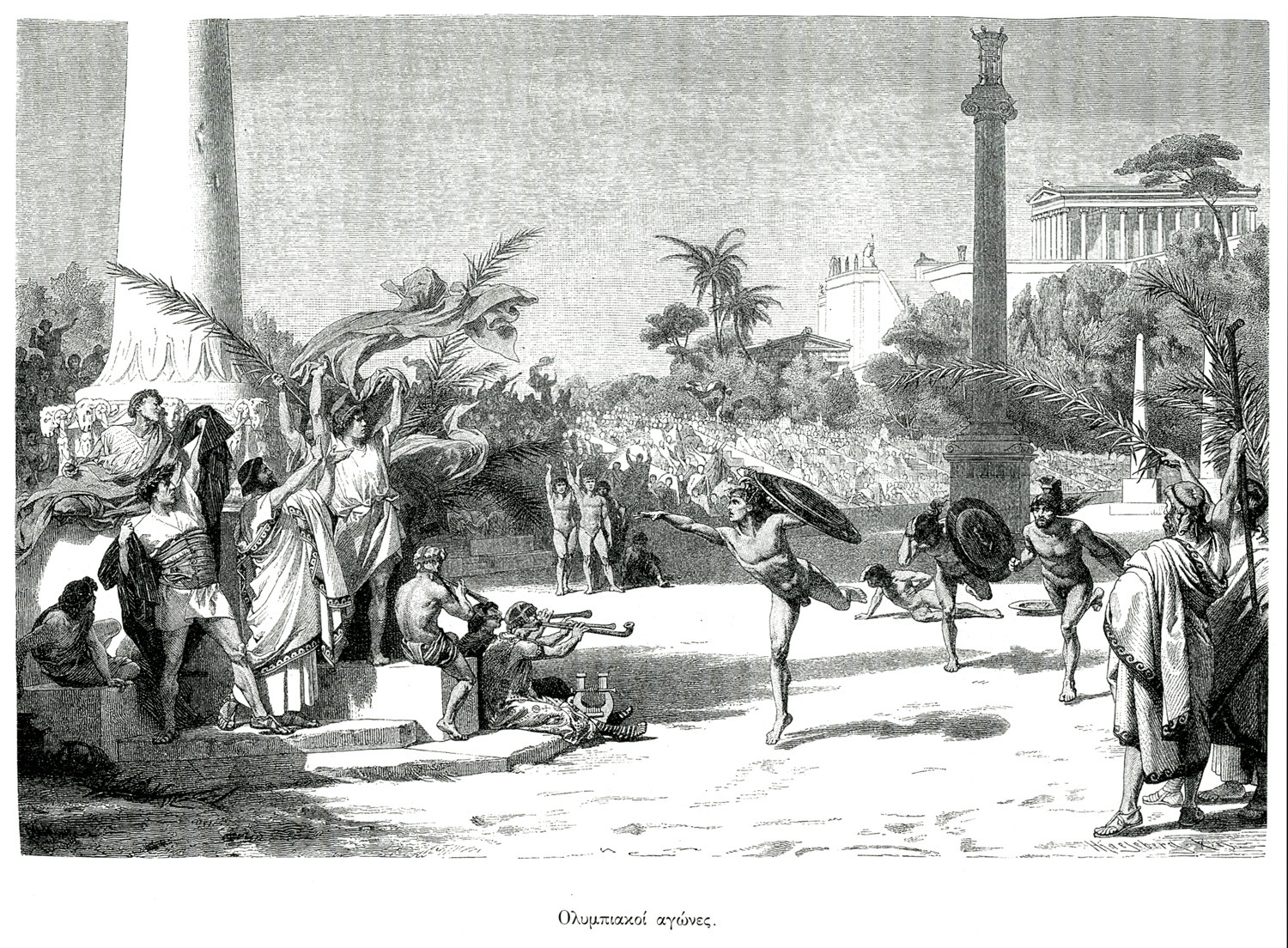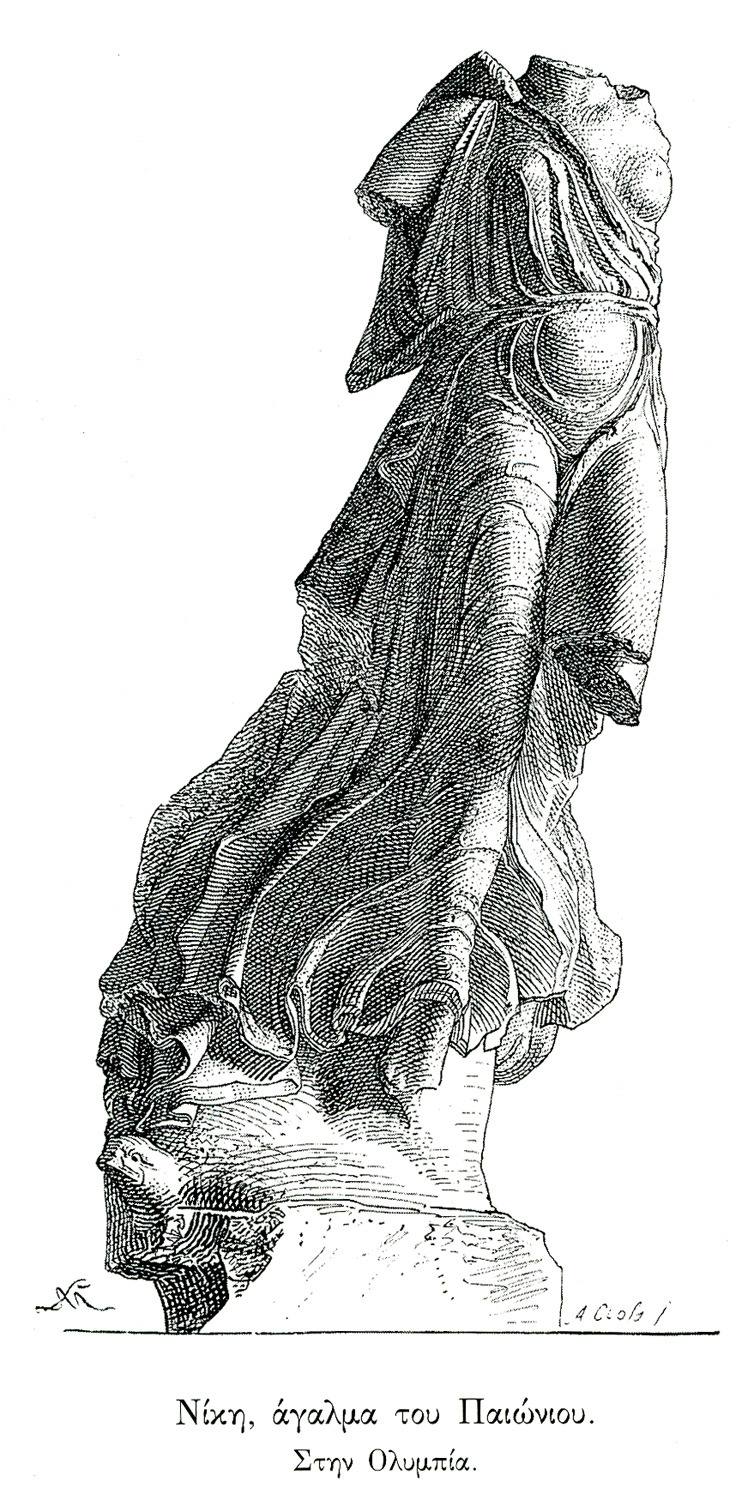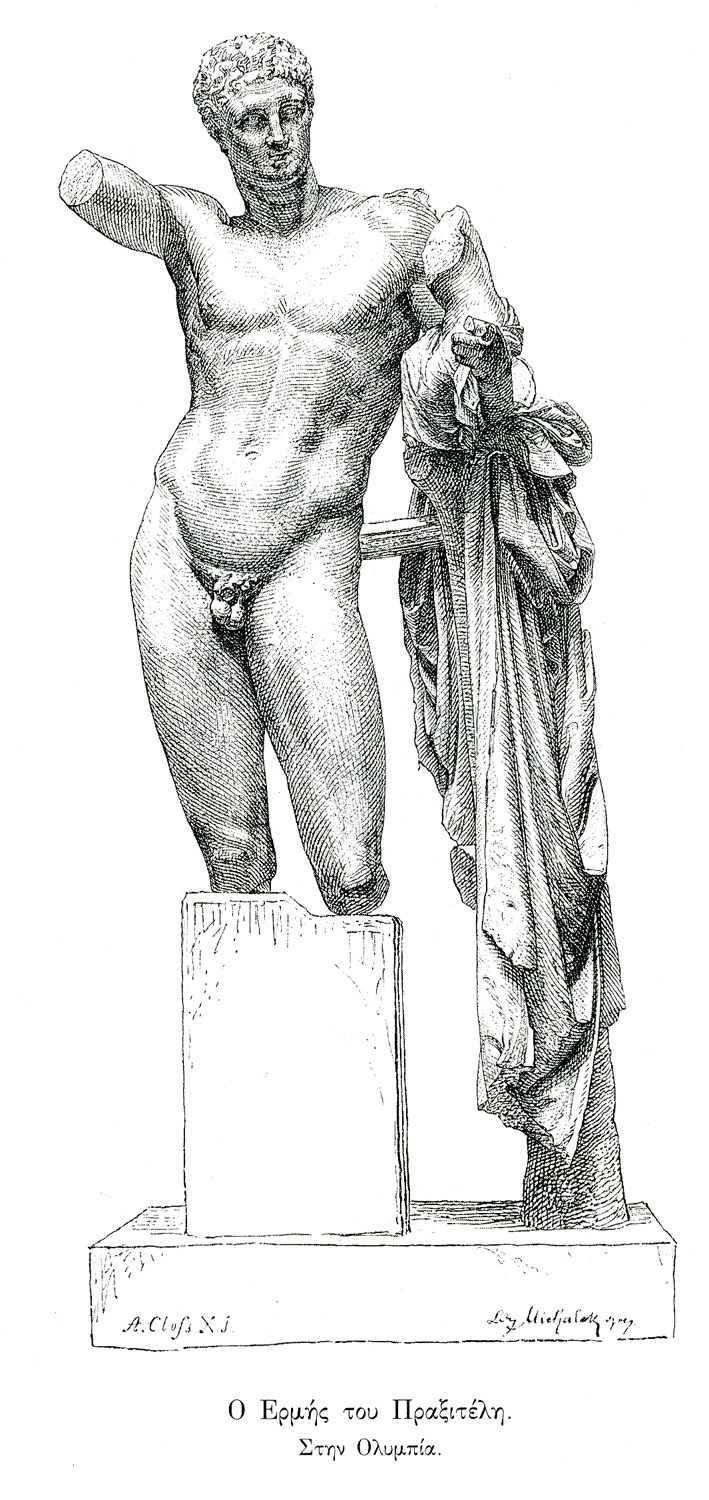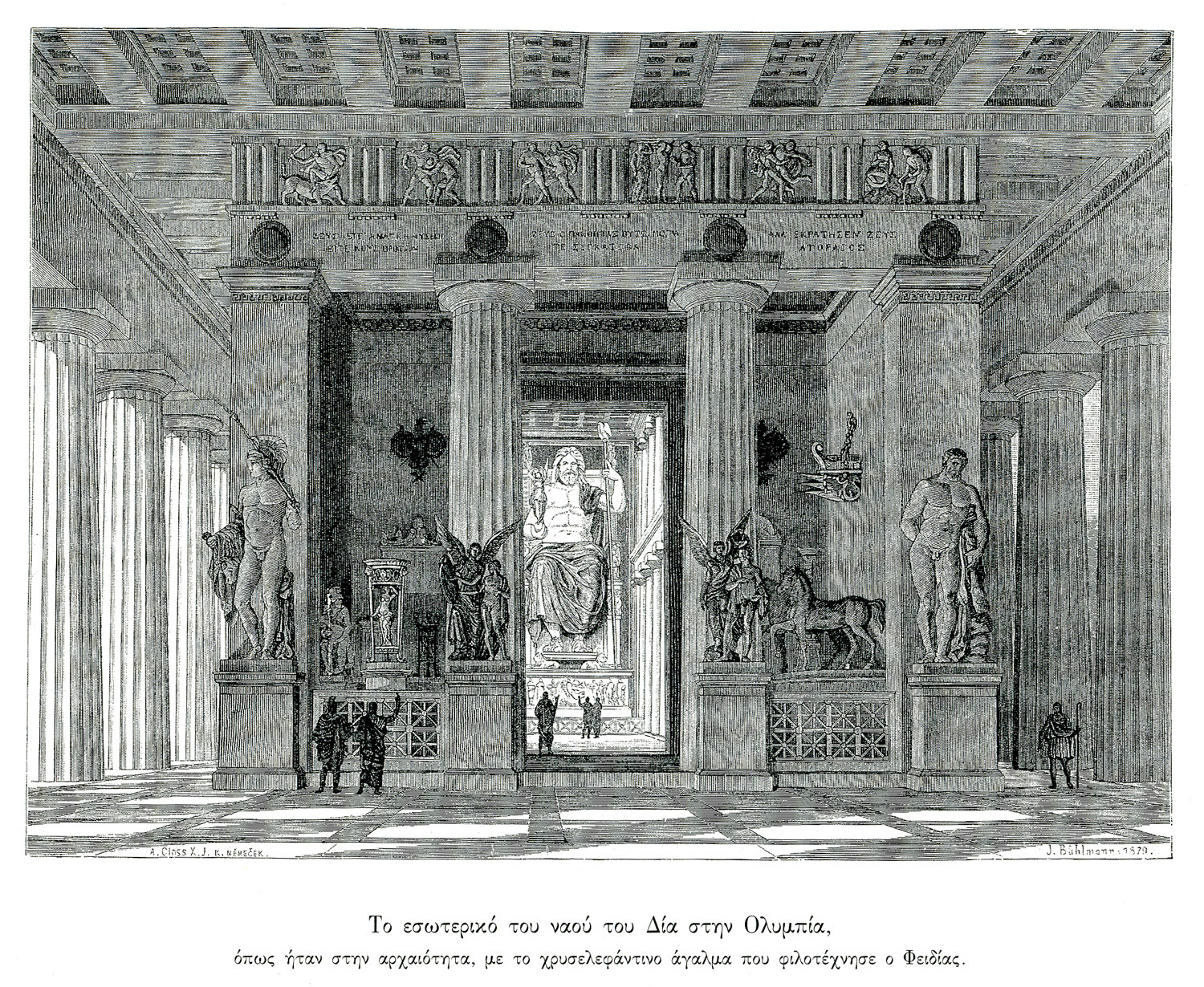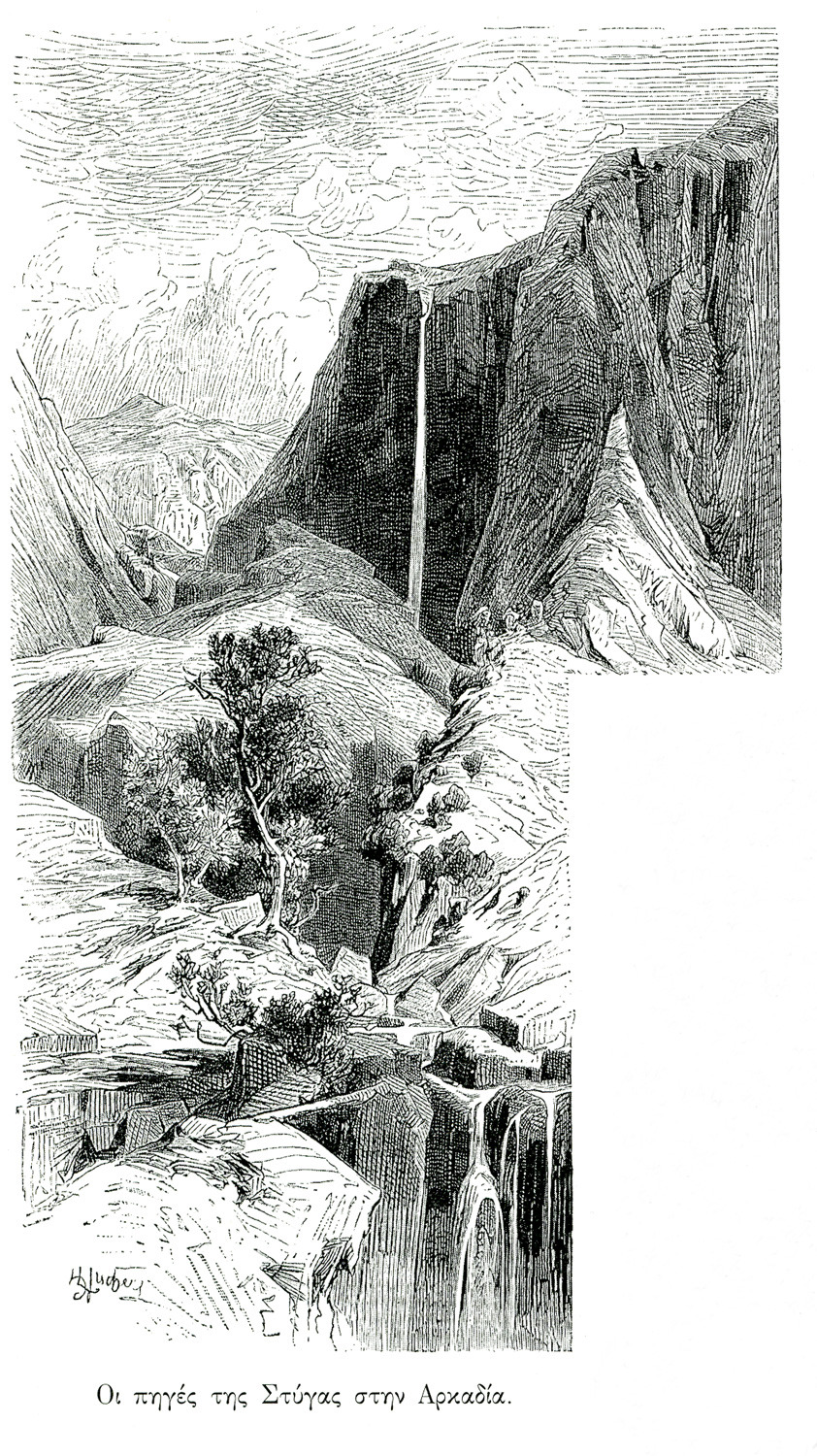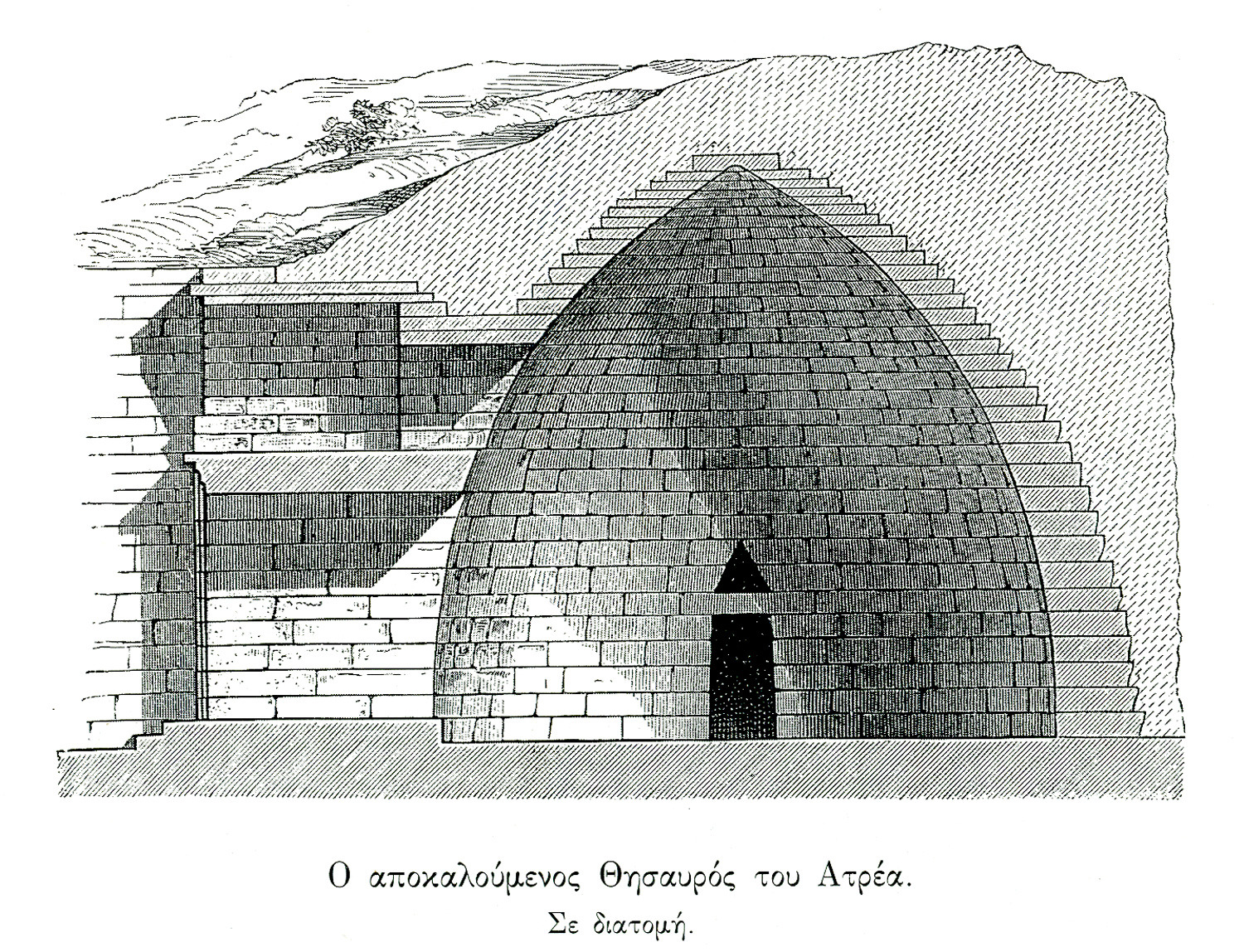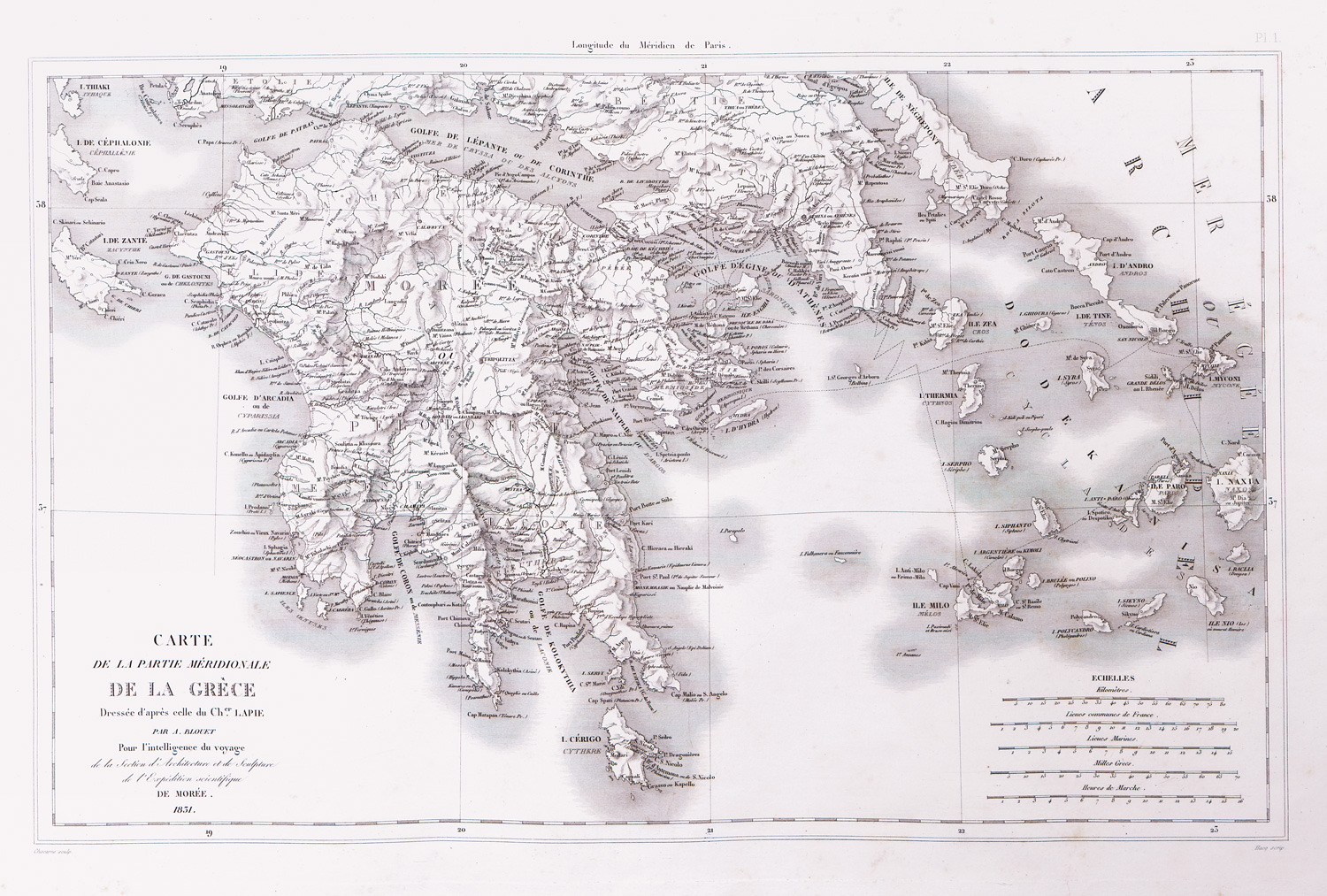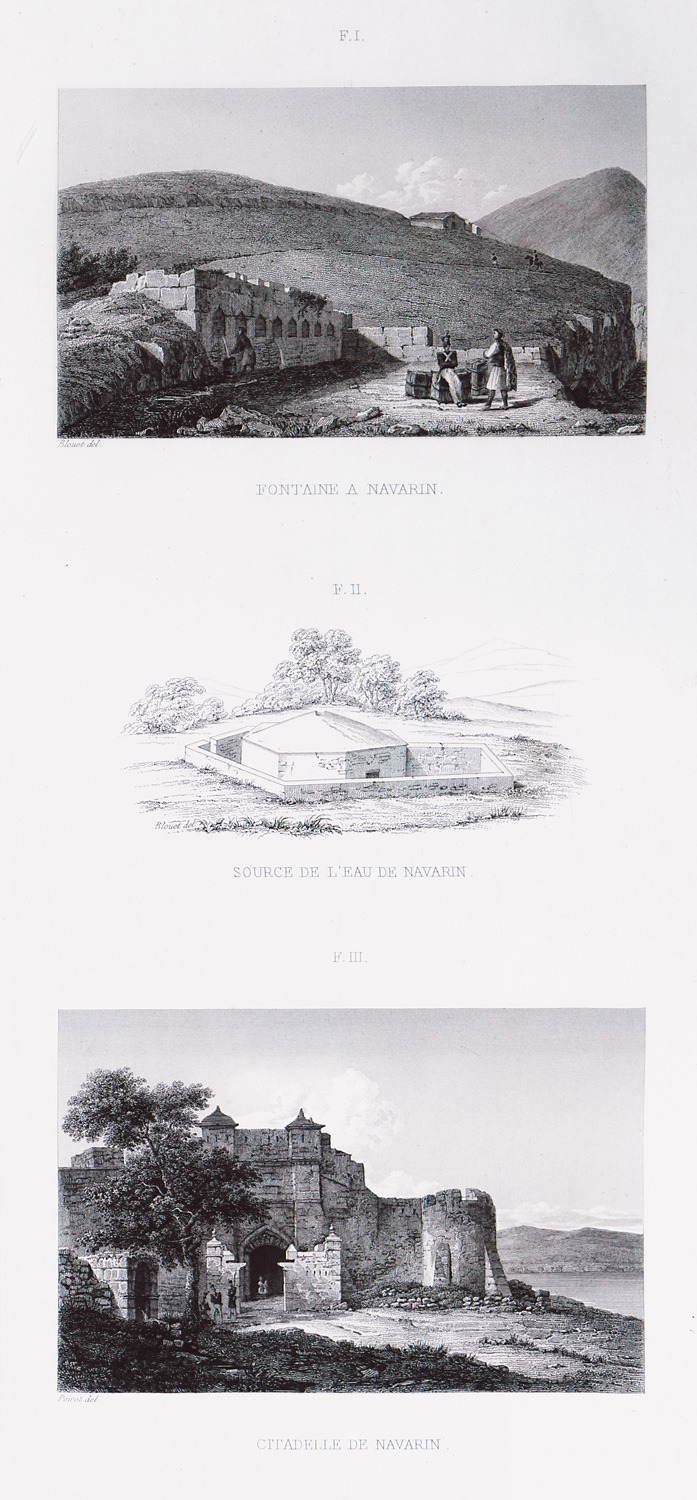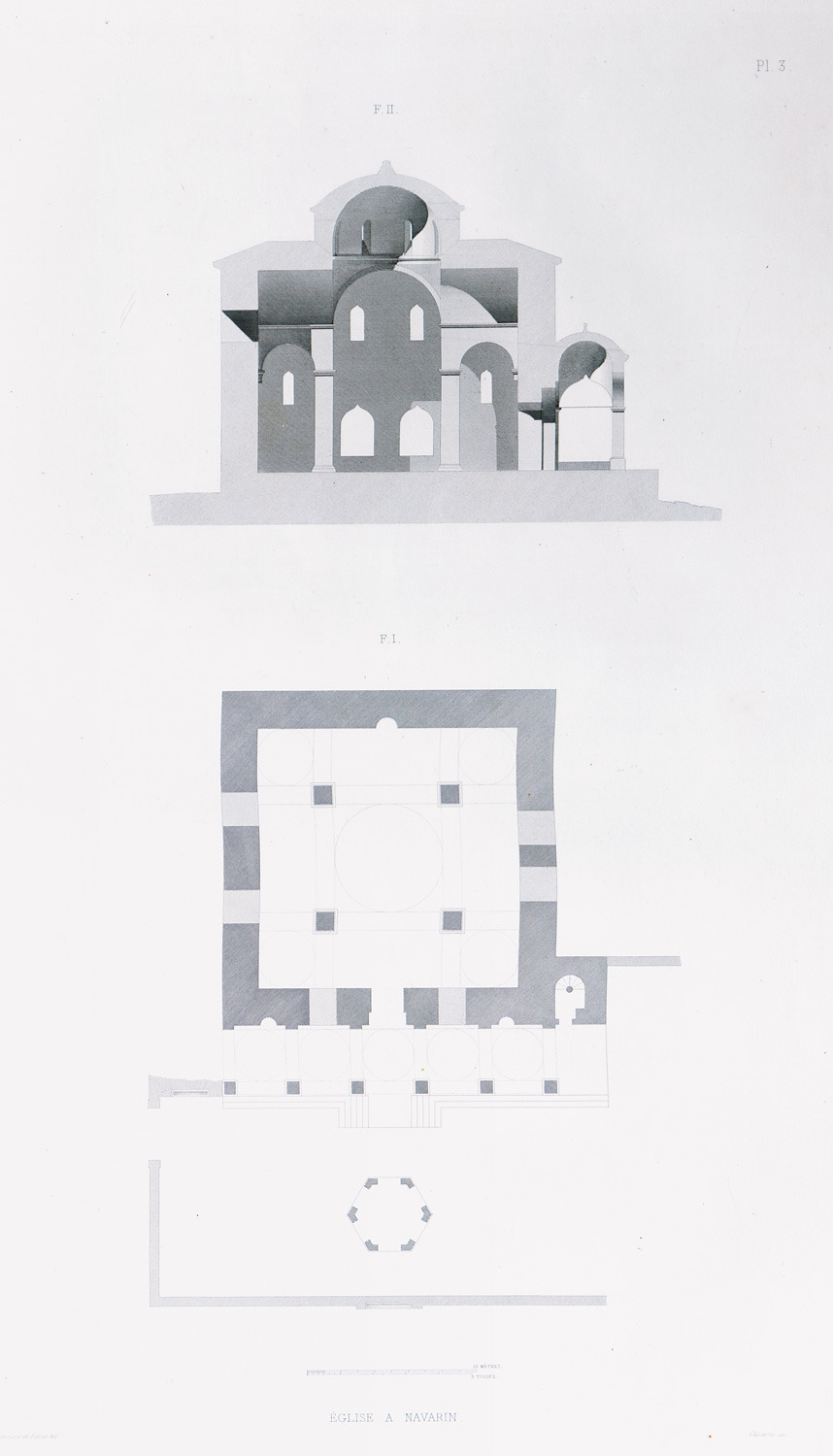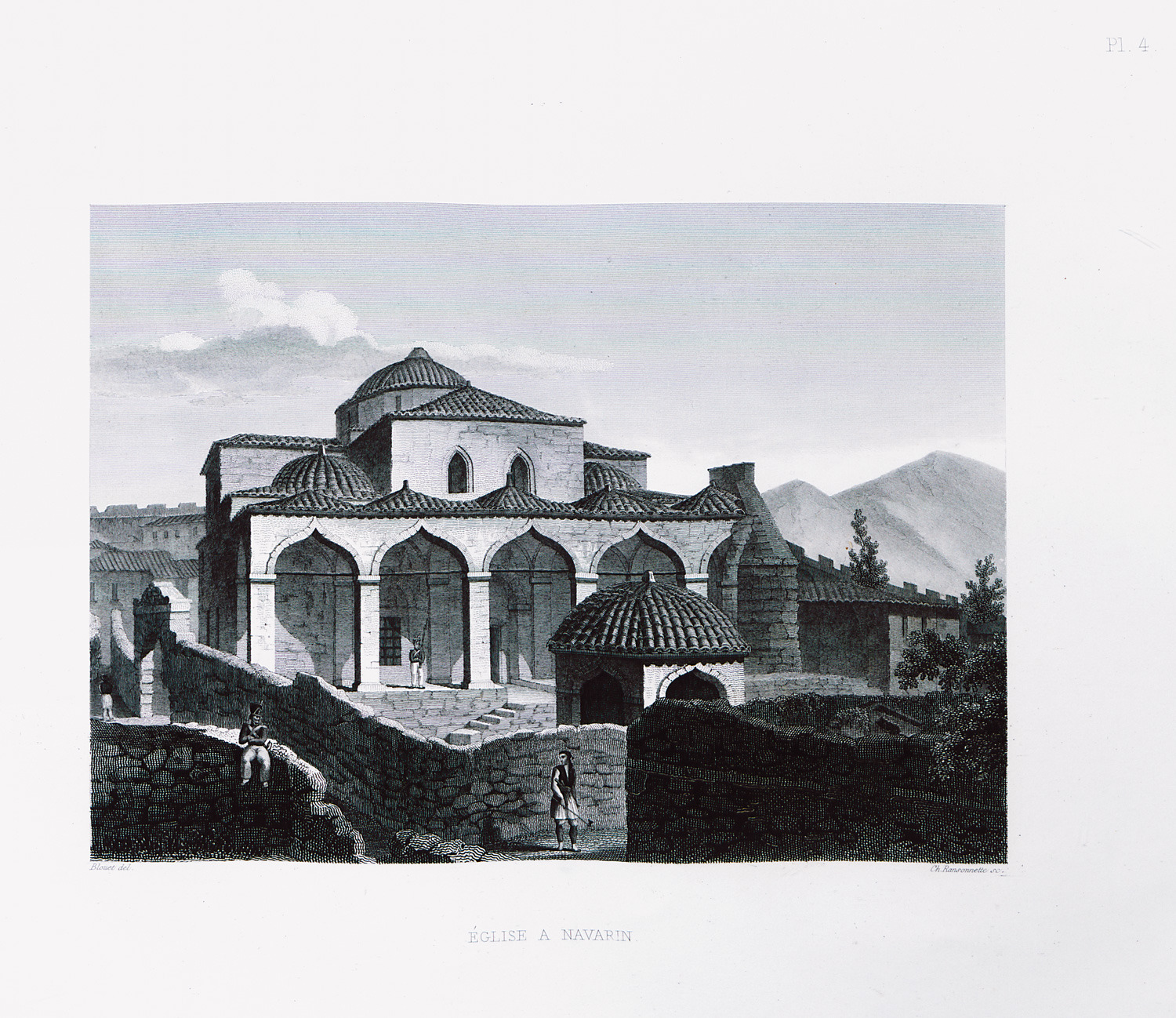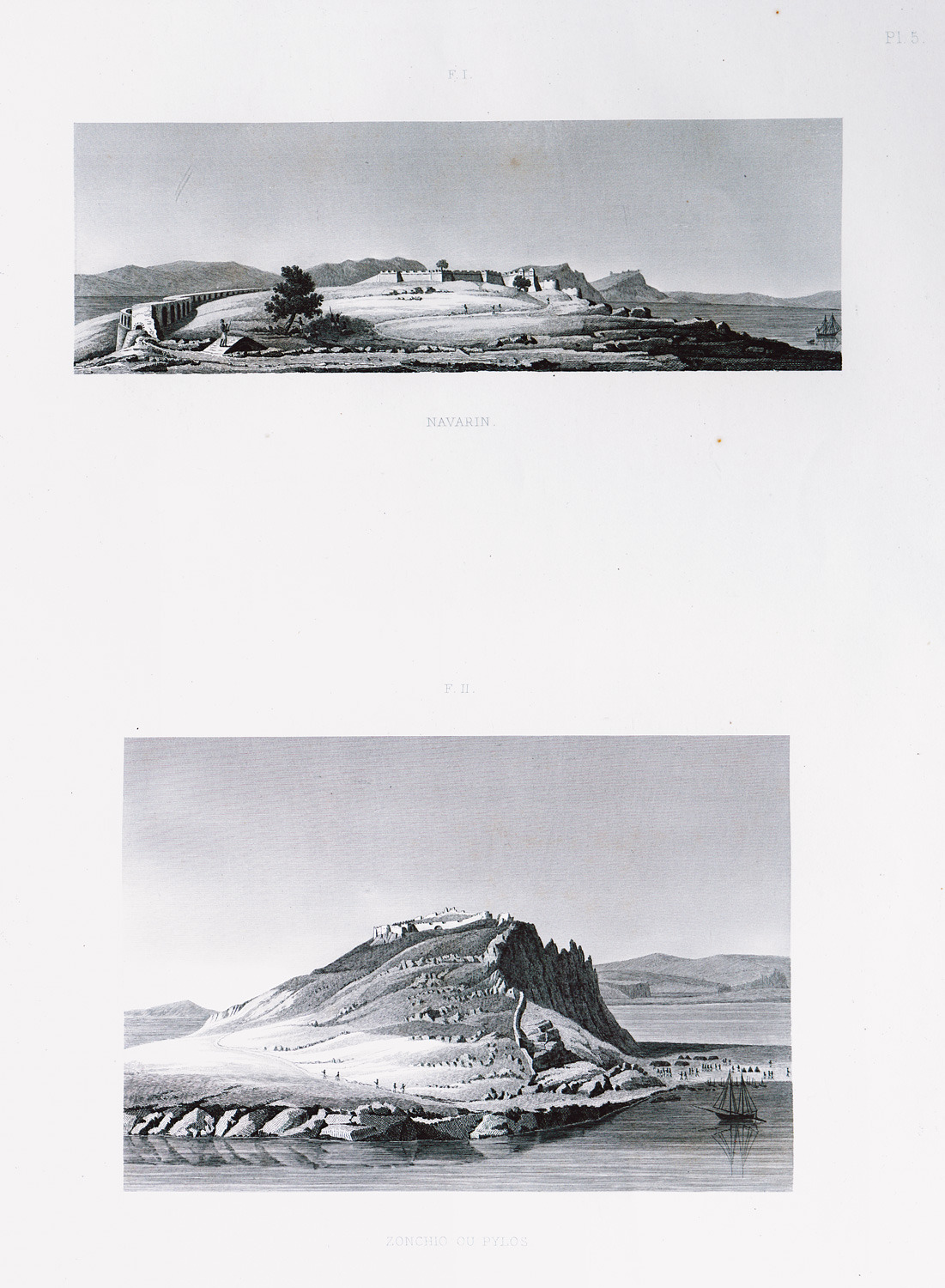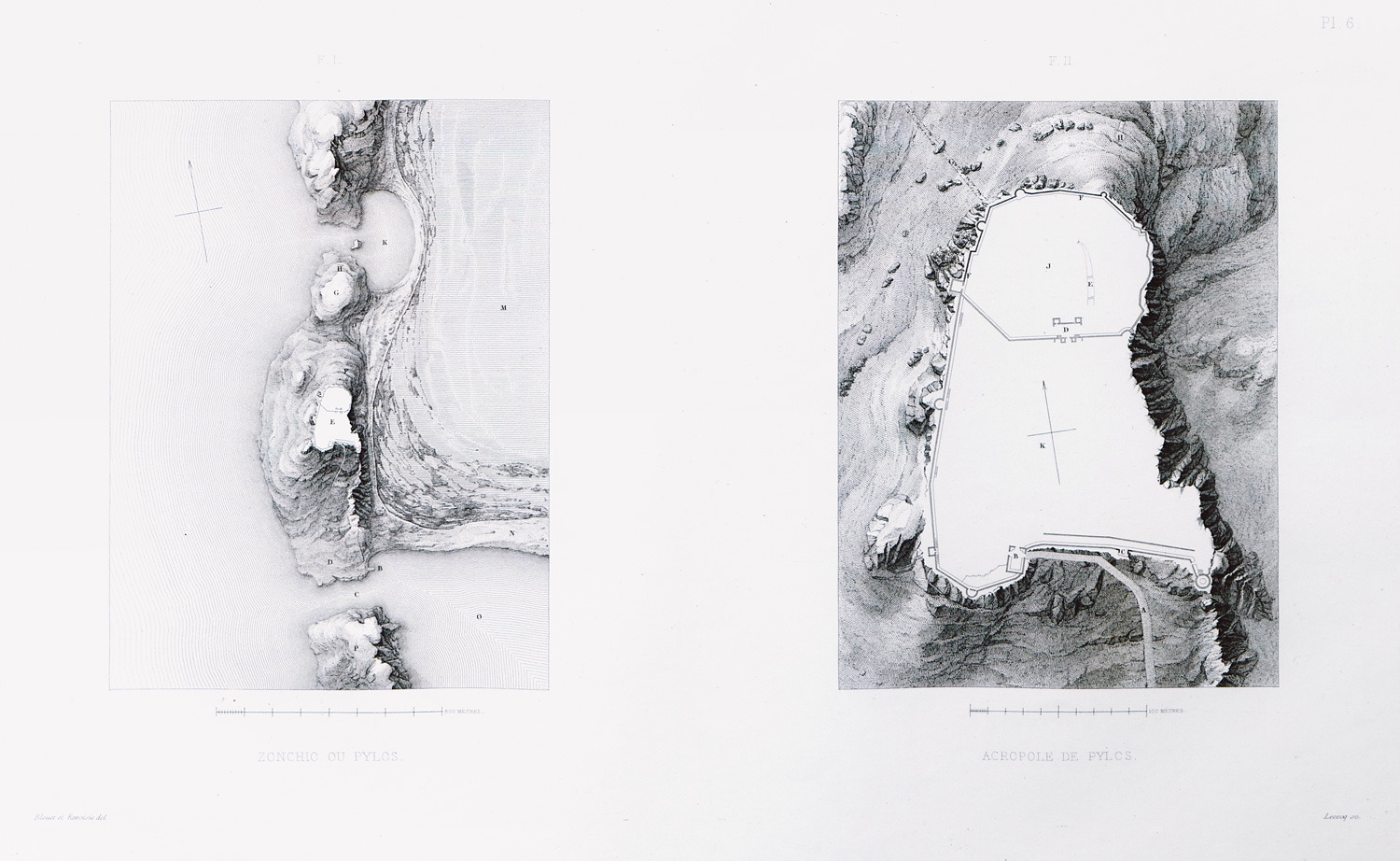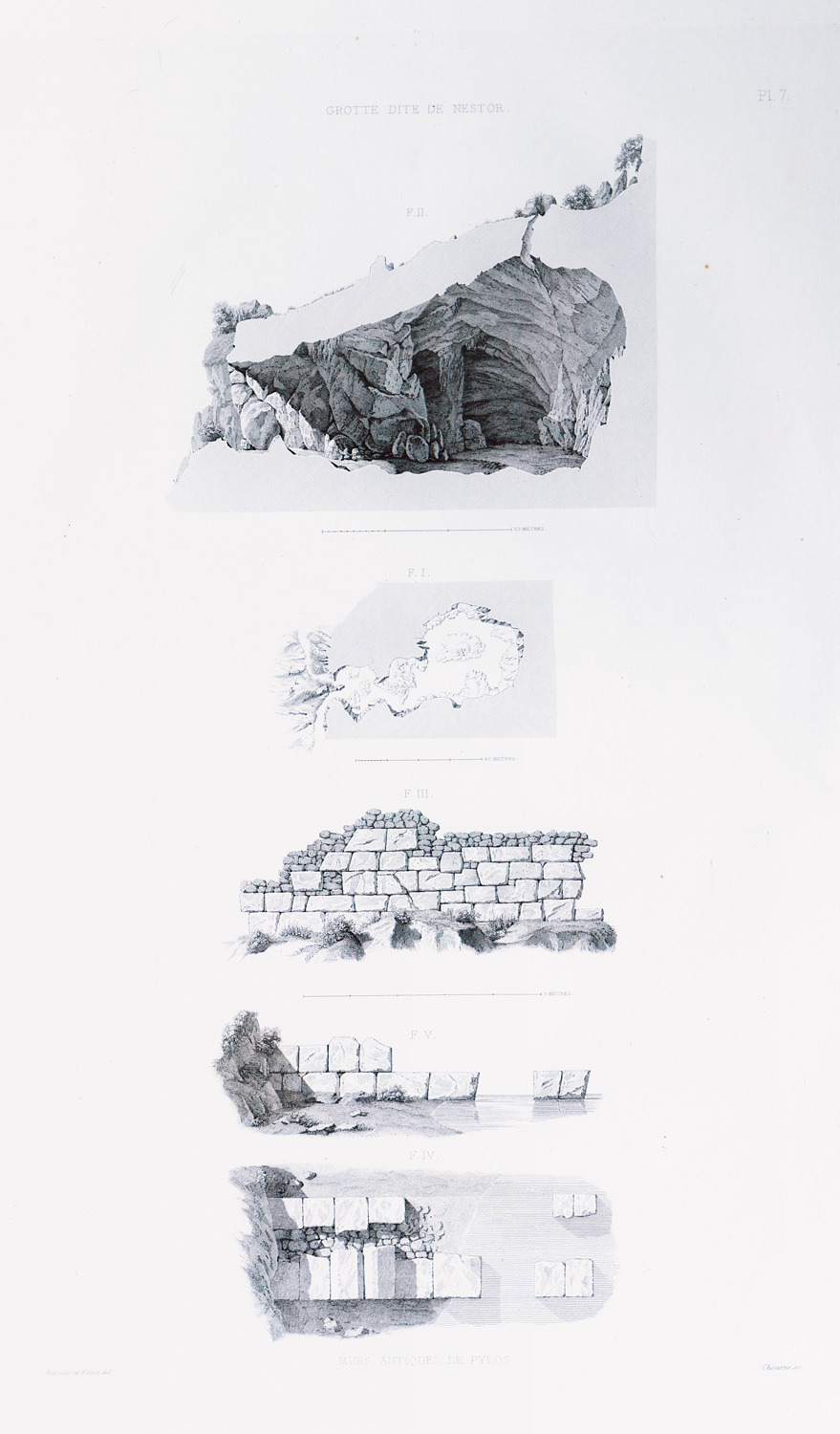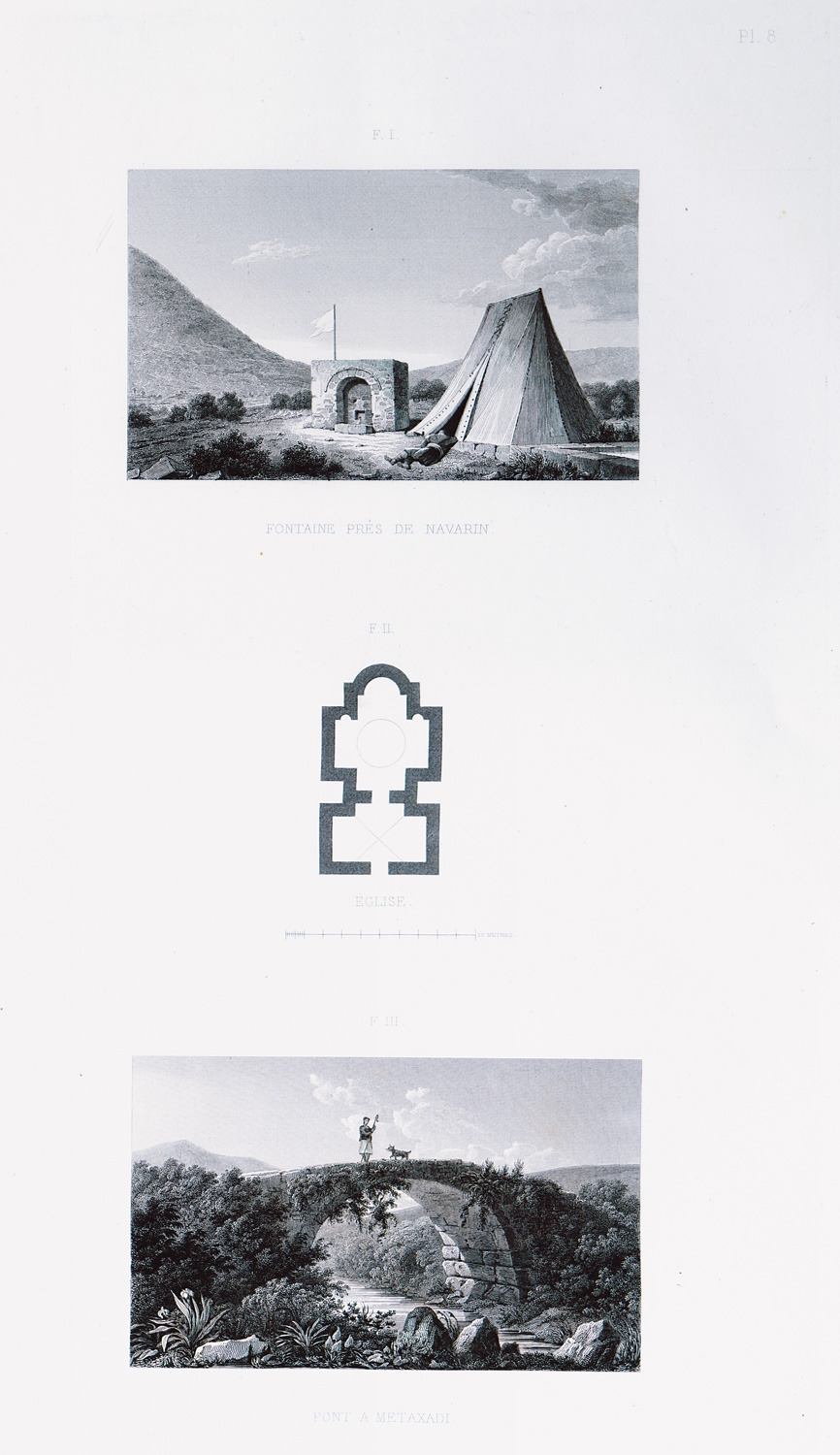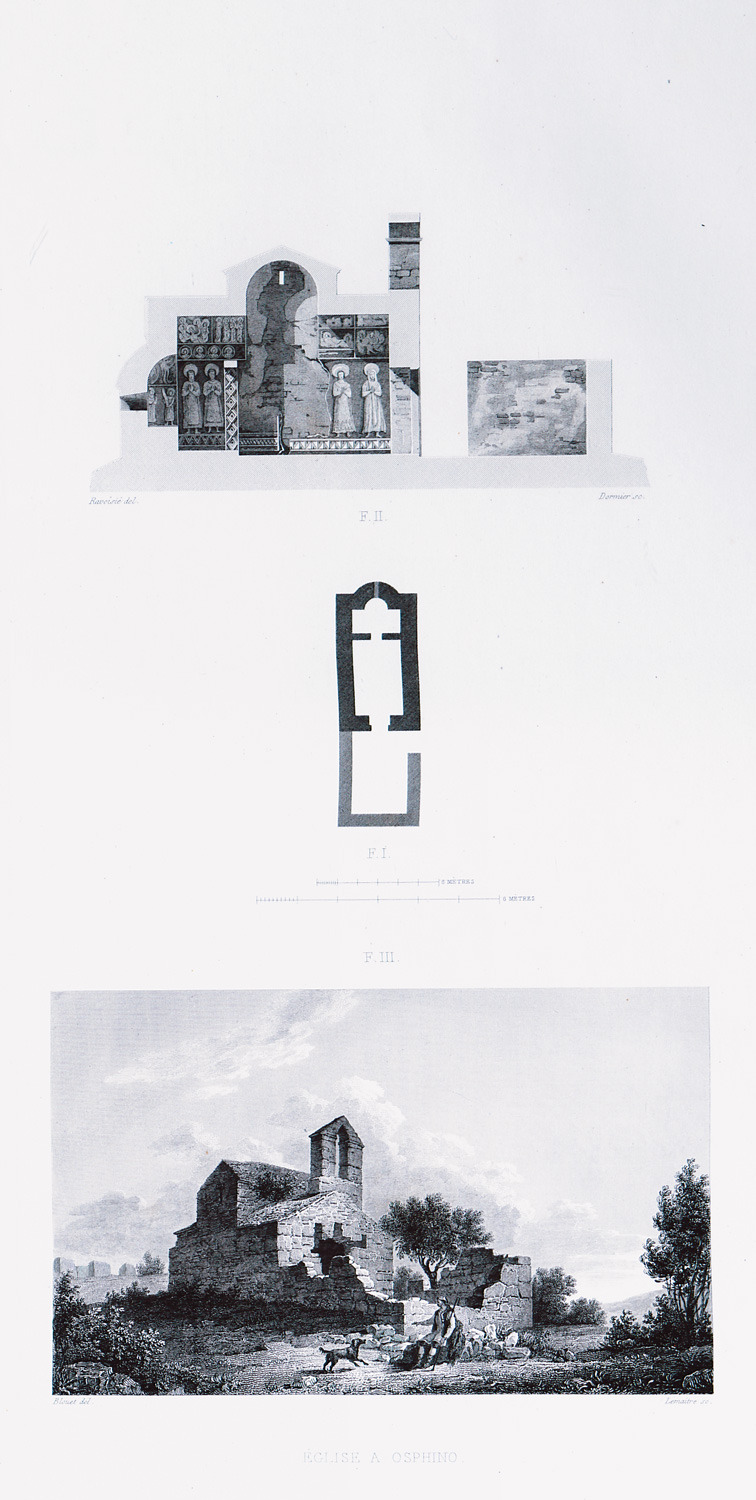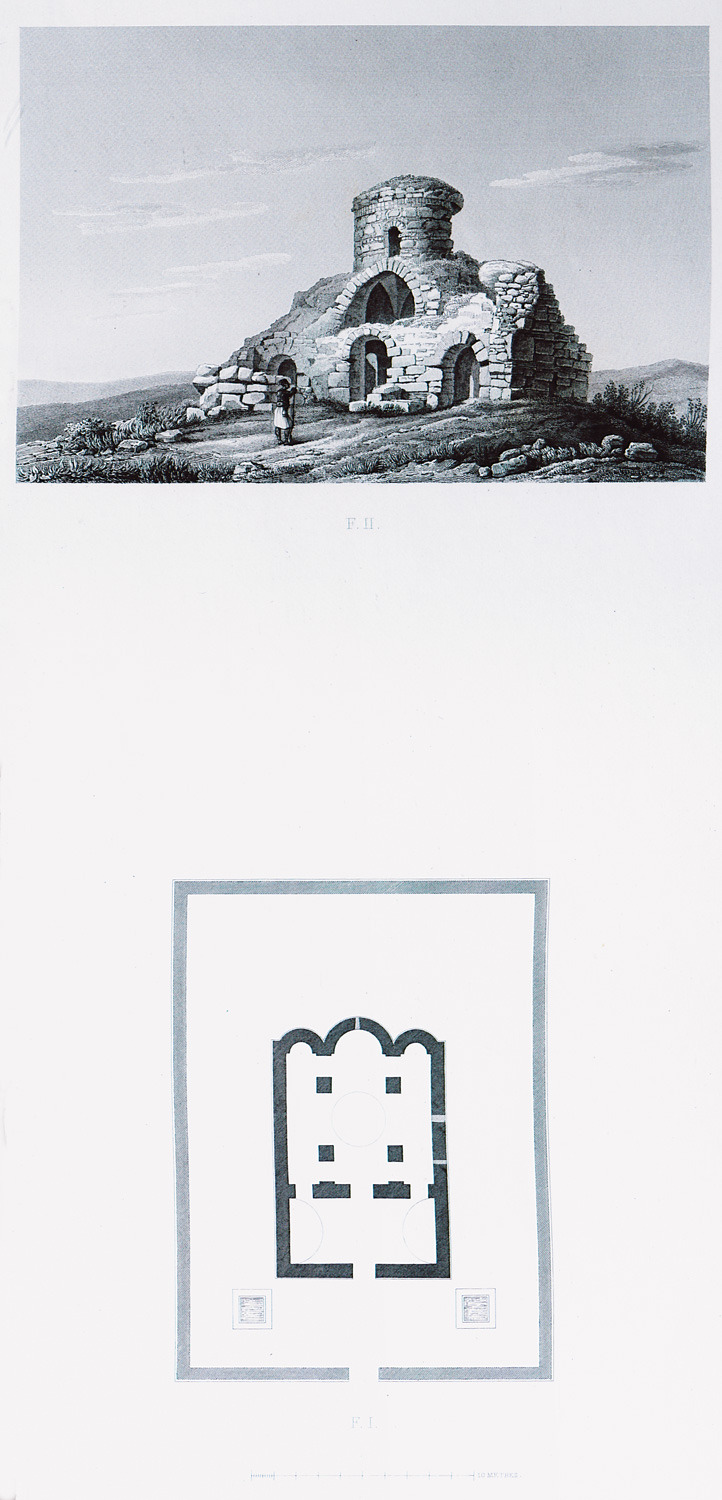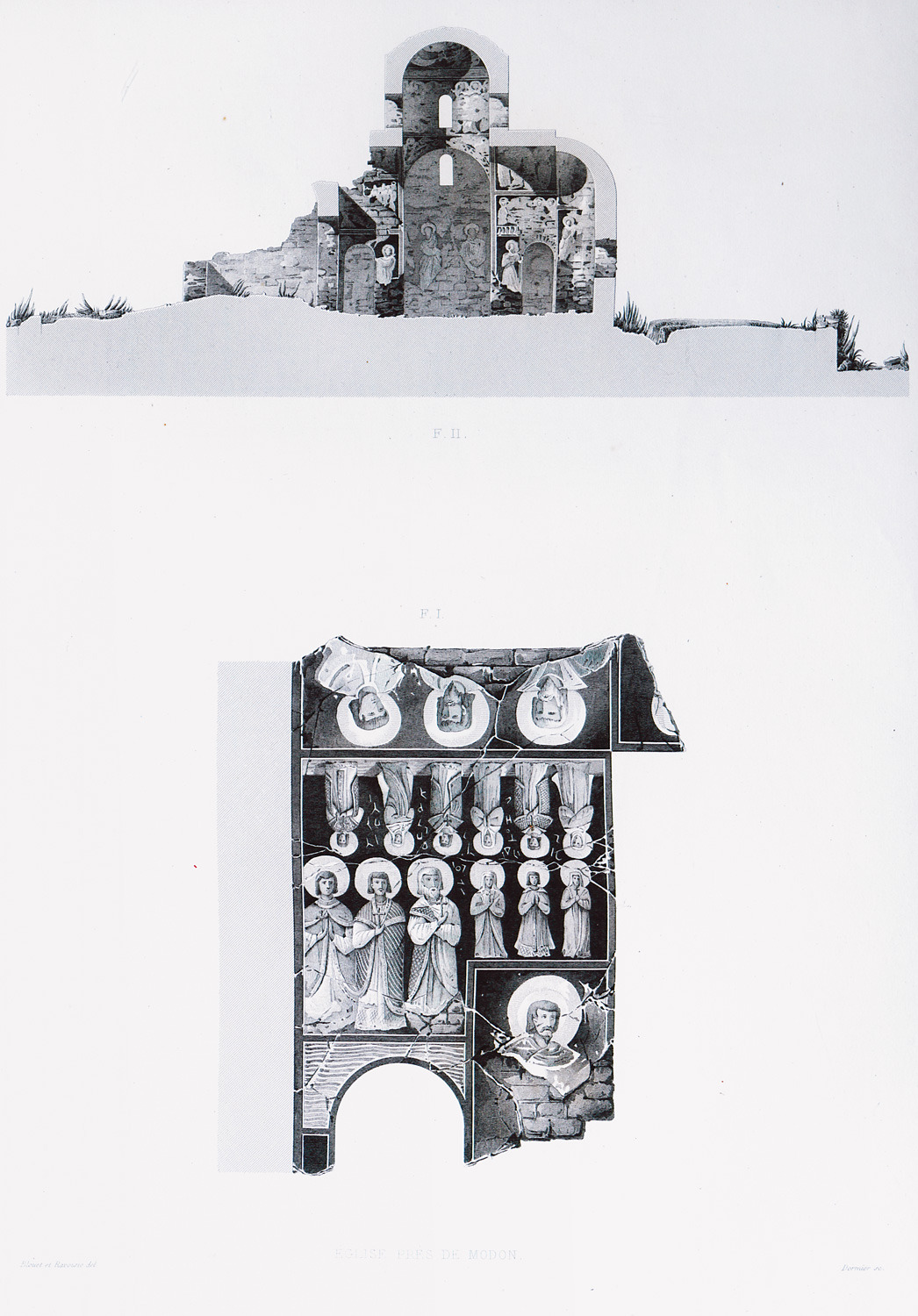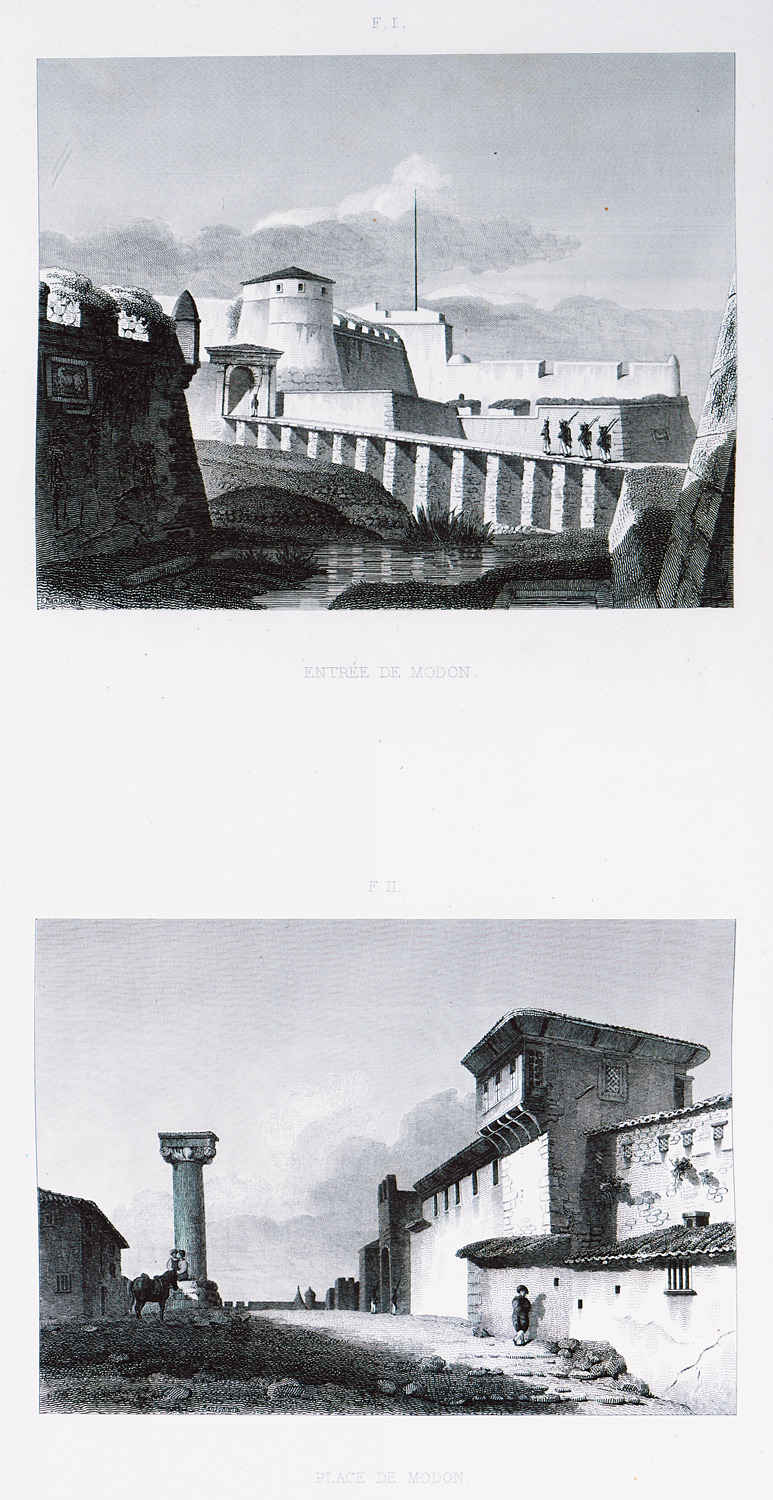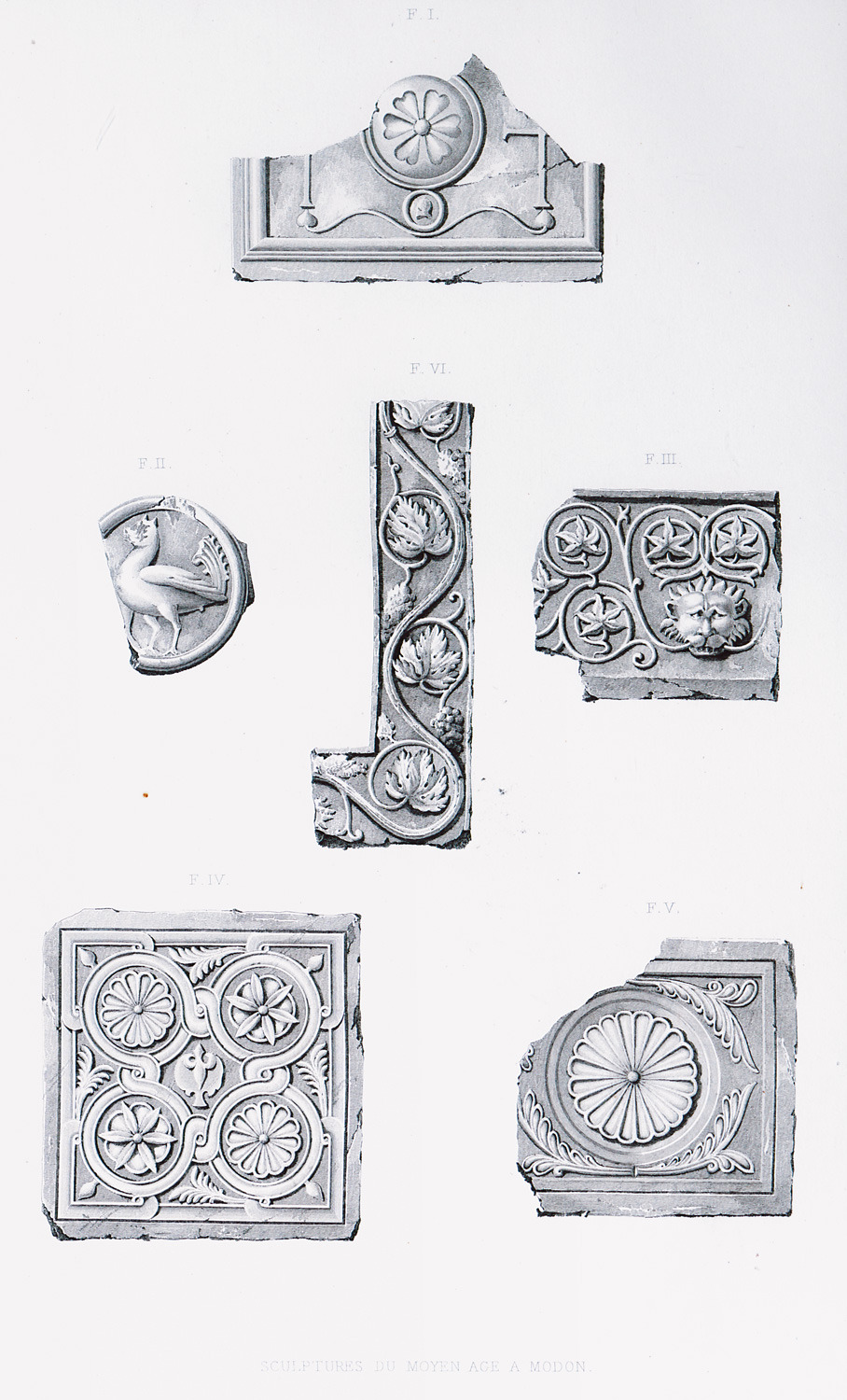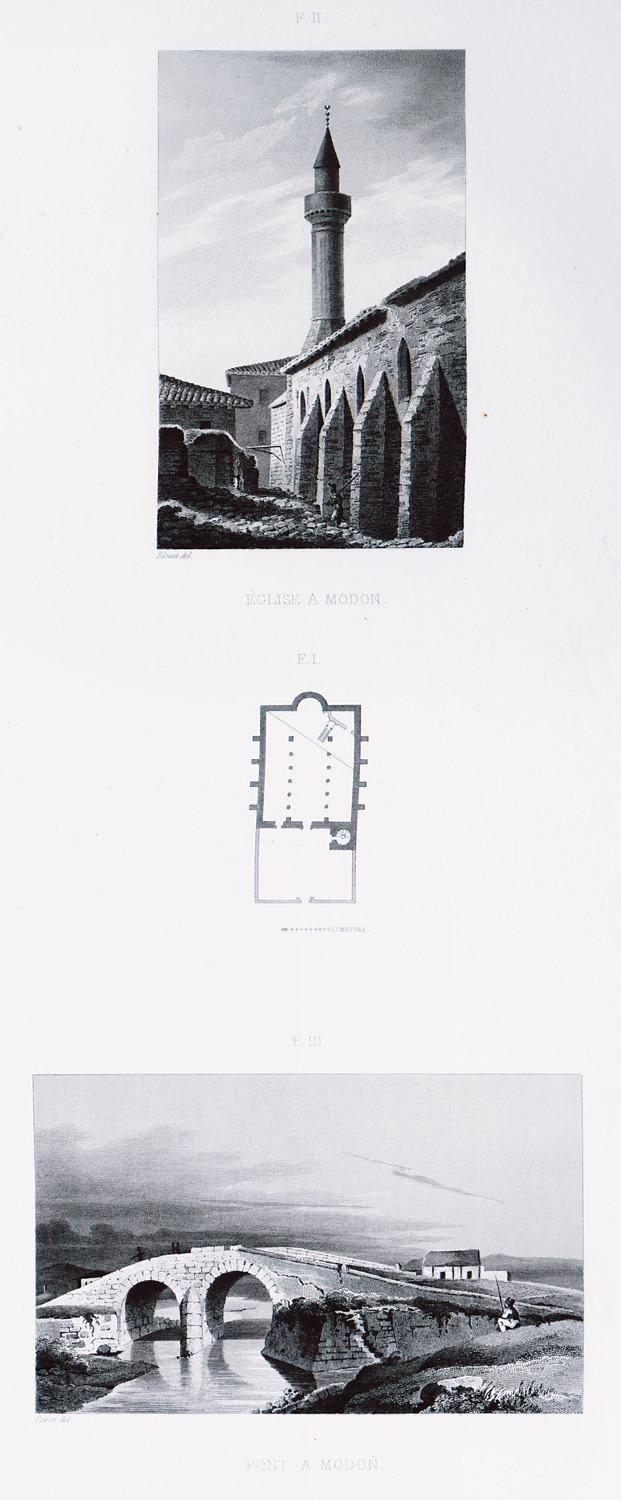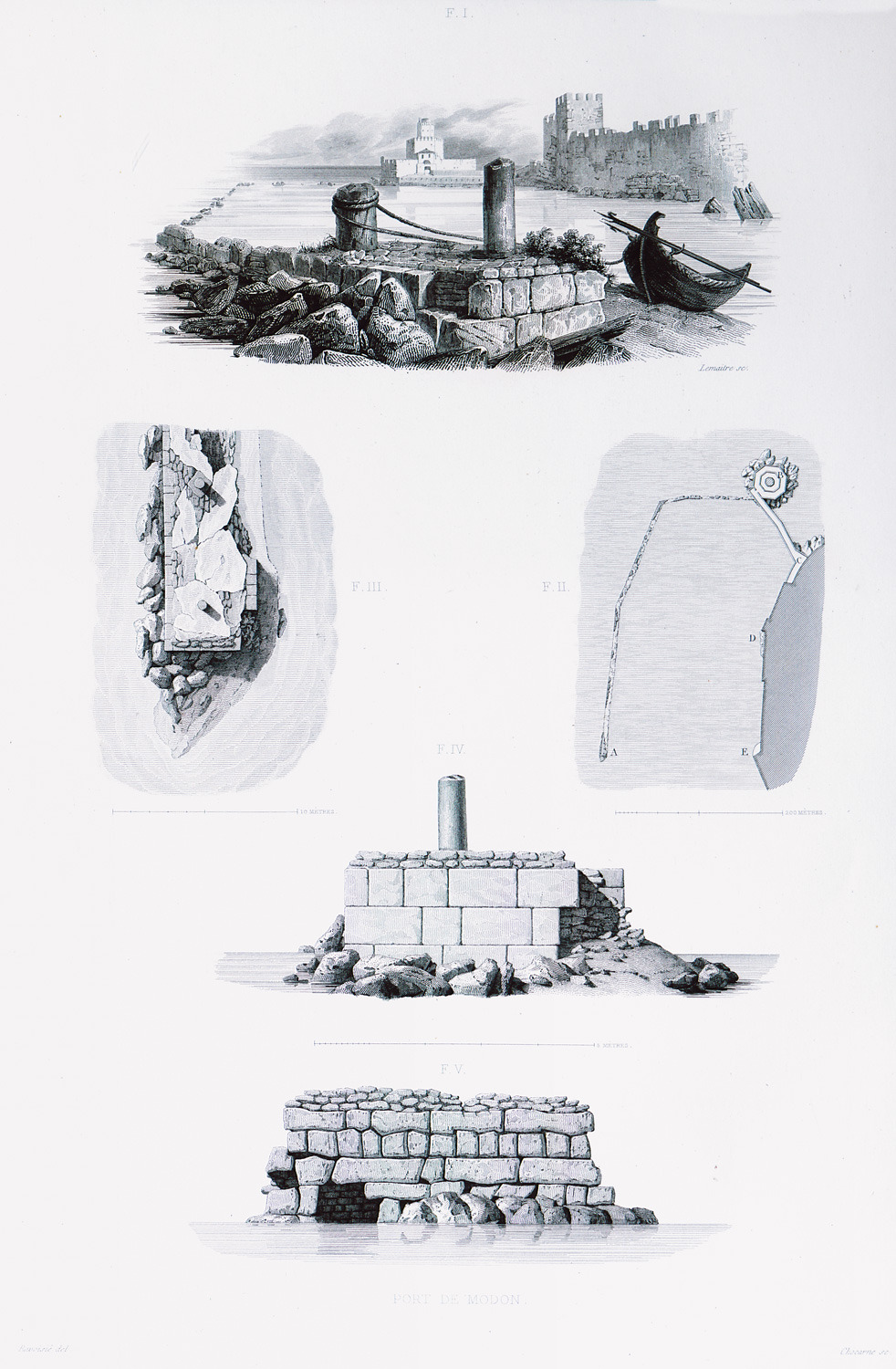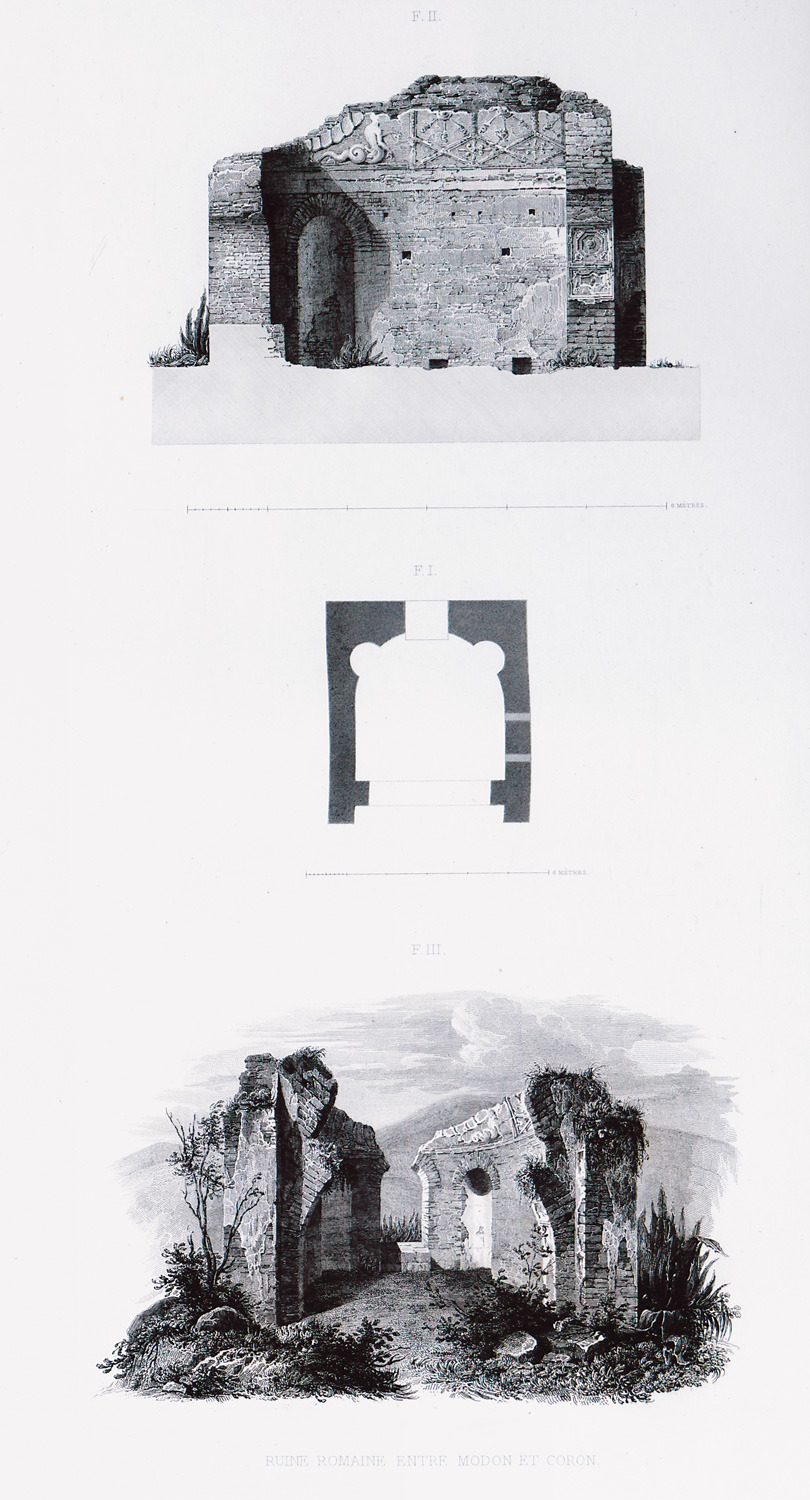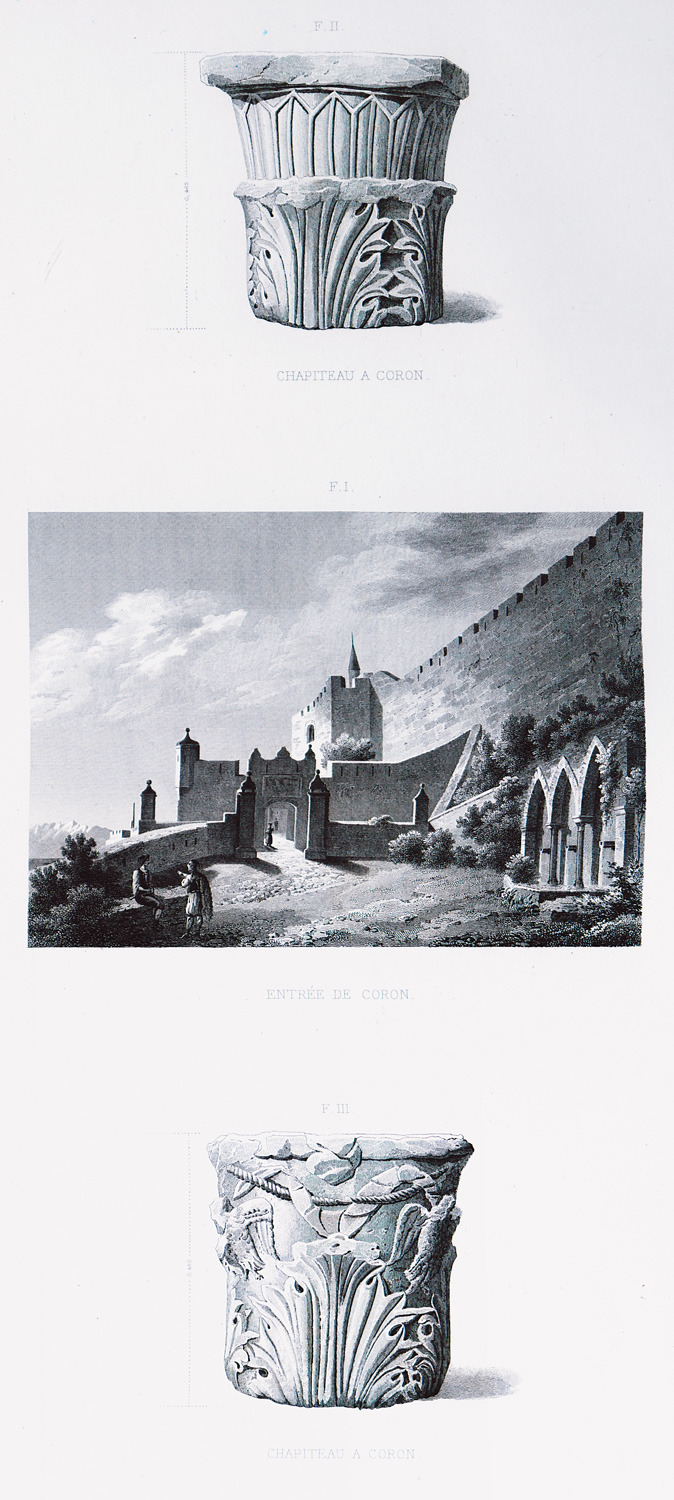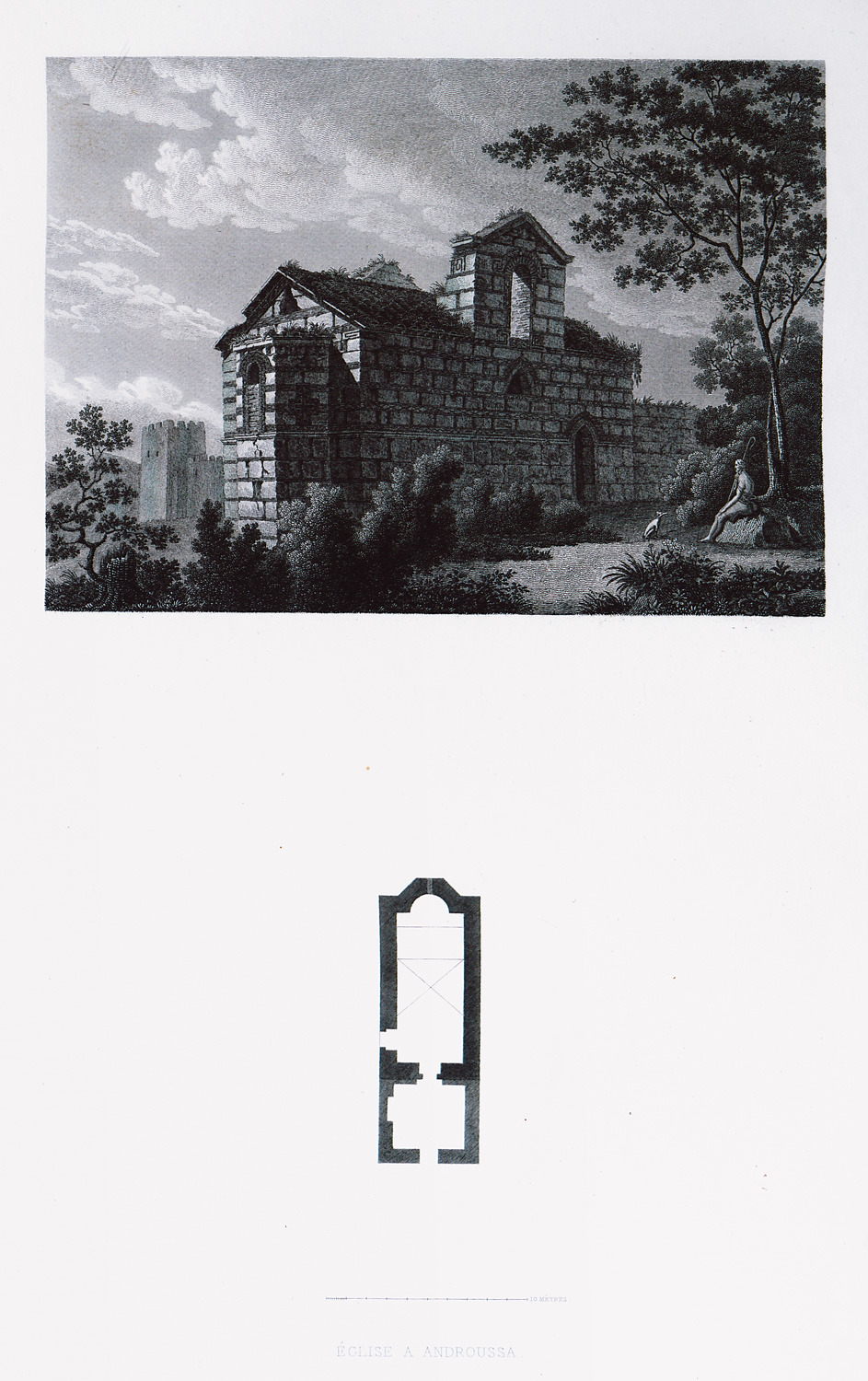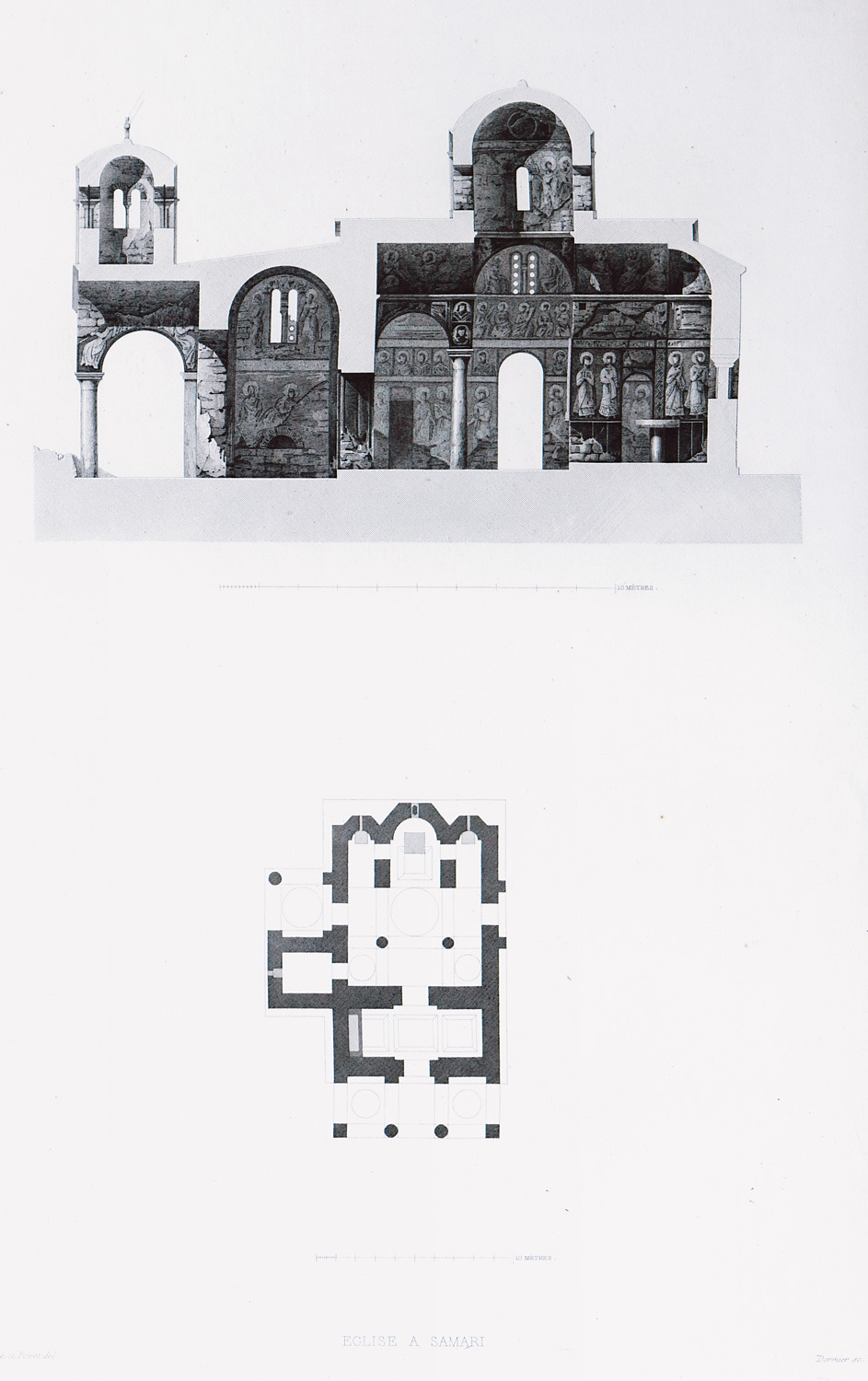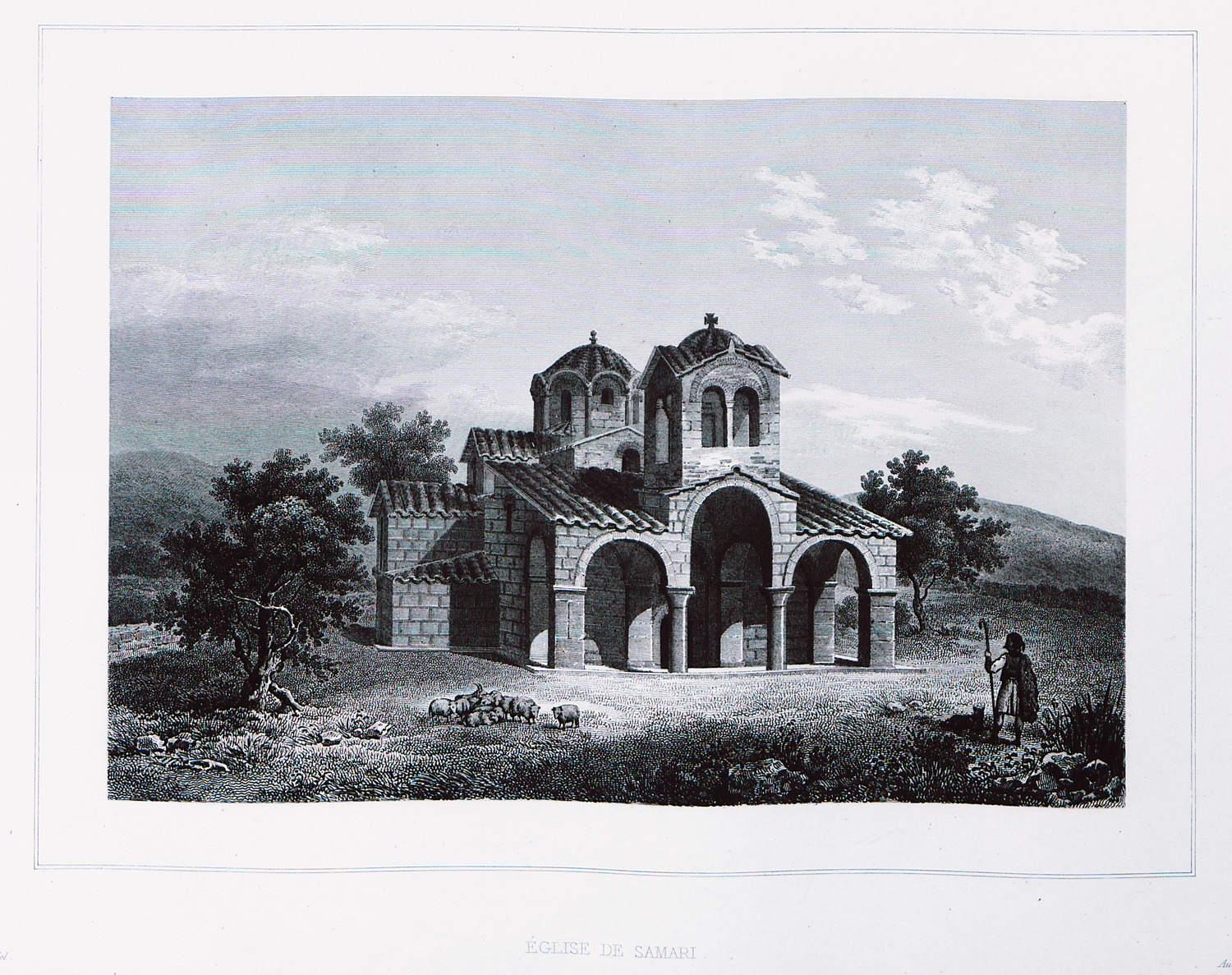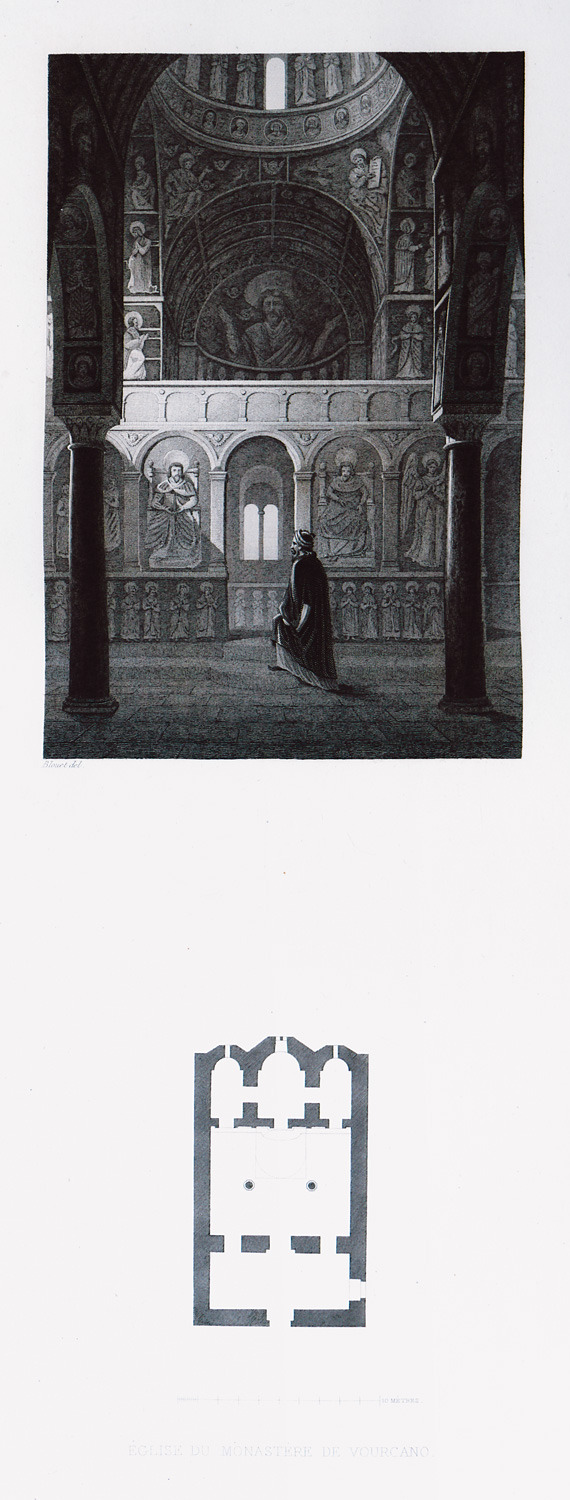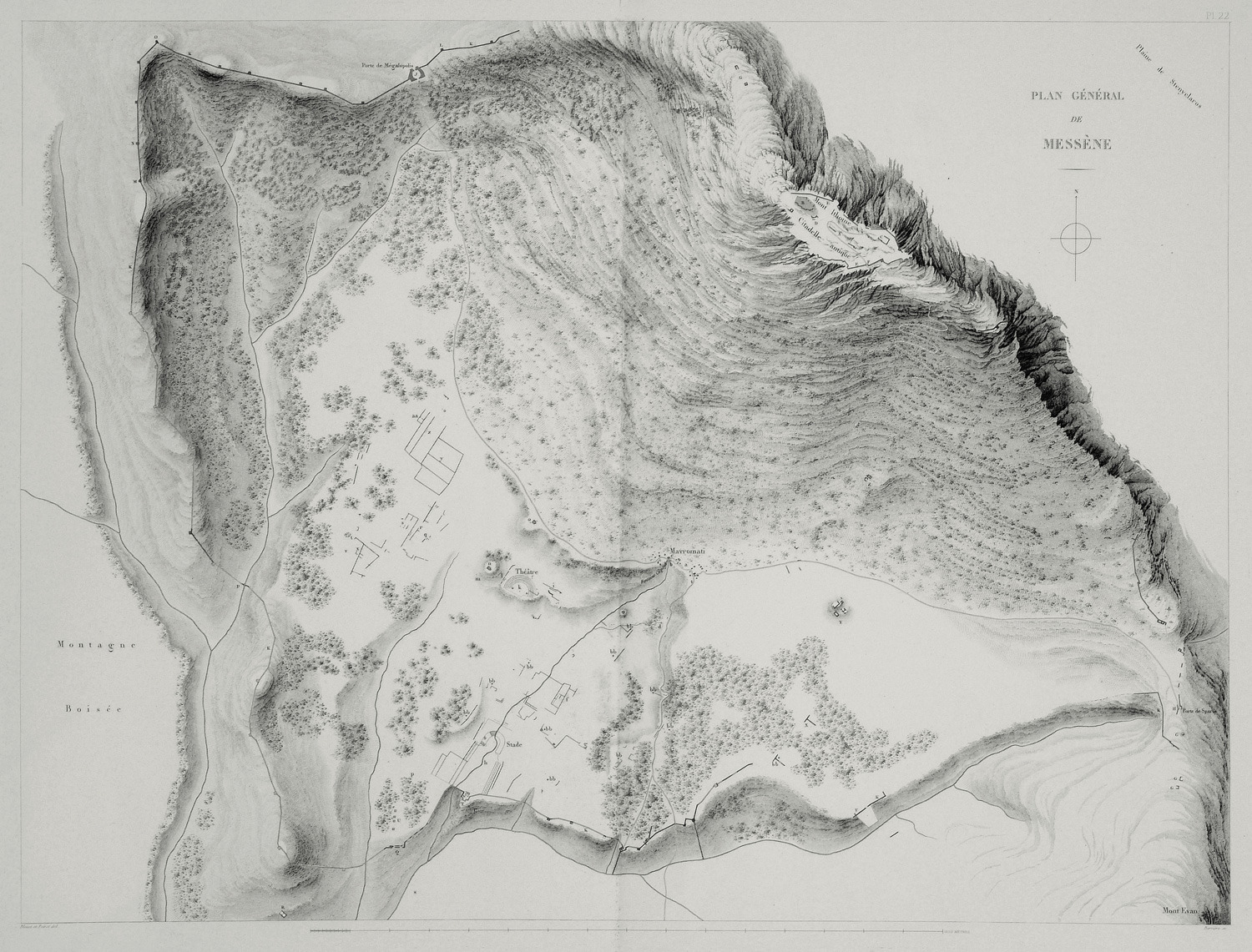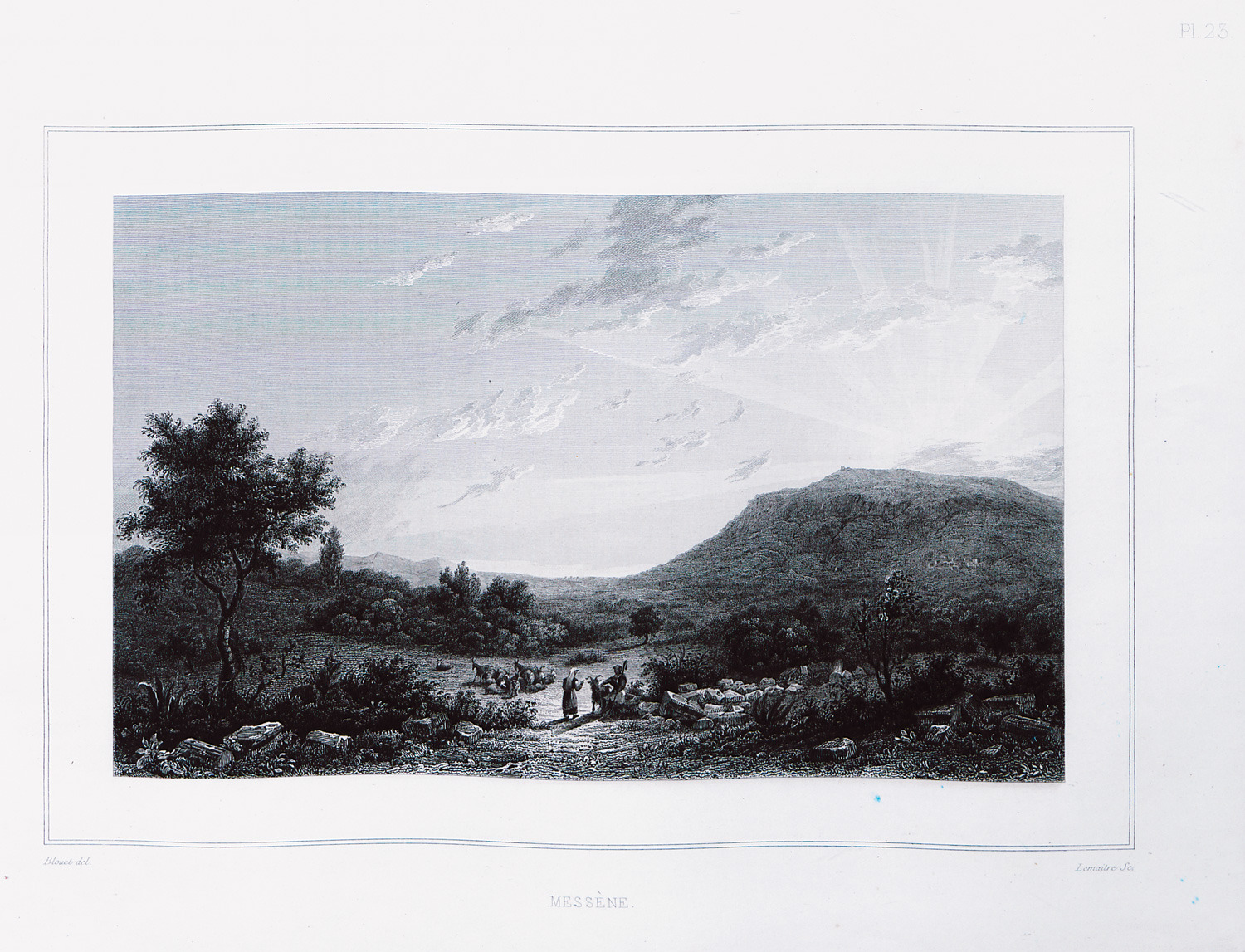Peloponnese (1650 Subjects)
Reconstruction of ancient Olympia, from drawing by Friedrich Wilhelm von Thiersch.
Scene from the Olympic Games (imaginary representation).
Statue of Nike by Paionius, Archaeological Musem of ancient Olympia.
Statue of Hermes by Praxiteles, Archaeological Musem of ancient Olympia.
Imaginary reconstruction of the interior of the temple of Zeus in Olympia, with Phidias's gold and ivory sculpture.
Waterfall of the Waters of the Styx, Peloponnese.
Section of the Treasury of Atreus, Mycenae.
Map of part of Attica and the Peloponnese.
1. Ottoman fountain at Pylos. 2. Water cistern at Pylos. 3. Entrance to Niocastro, Pylos.
Section and plan of the church of Metamorfosis (formerly a mosque) at Niokastro, Pylos.
The church of Metamorfosis (formerly a mosque) at Niokastro, Pylos.
Top: View of Niokastro, the Ottoman fortress of Pylos. Bottom: View of Palaiokastro, the Venetian fortress of Pylos.
Top: Topographical map of the area of Palaiokastro, Pylos. Bottom: Plan of Palaiokastro, Venetian fortress of Pylos, which was built on the site of the Acropolis of ancient Pylos (Neleion).
Top: Cave of Nestor, located at Palaiokastro, to the side of Voidokoilia beach. Topographical map of the adjacent area. Bottom: Ruins of the walls of ancient Pylos, incorporated into the fortifications of the Venetian fortress of Palaiokastro.
1. Fountain close to Pylos. 2. Plan of church. 3. Stone bridge at Metaxada, close to Pylos.
Section, plan and view of the unidentified "Church of Osphino", on the route from Pylos to Methoni.
1. Plan of the church of Agioleo (Saint Leon) at Palaiomethoni. This was probably the site of the now-lost Cistercian monastery of De viridario beatae Mariae at Paliomethoni, close to Methoni. 2. View of the monastery of Hagios Vasileios, close to the early Christian catacombs of Saint Onuphrius.
Section of church at Methoni. Frescoes from the same church.
1. The Gate of Xira at the castle of Methoni. The granite column known as column of Morosini at the castle of Methoni.
Decorative reliefs of the Venetian era at the castle of Methoni.
1, 2. View and plan of the now-lost Catholic church of Saint John (San Giovanni Evangelista), converted into a mosque (Beyazit Veli mosque) during Ottoman rule. Today only the base of one minaret is preserved. 3. One of the two stone bridges at the environs of Methoni which were demolished in the mid-20th century.
1. View of the port of Methoni. In the background, the Bourtzi of Methoni, built in the first perid of Ottoman rule of the city. 2. Plan of the remains of the Venetian mole of Asprades. 3. View of the stone dock of Asprades and the column used as bollard, or dock post. 4. Details of the column and the stone mole of Asprades.
1. Plan of early Byzantine basilica at Loutsa, close to Foinikounta, Messenia. 2, 3. Roman ruins at Loutra, close to Foinikounta, Messenia.
Entrance to the Venetian castle of Koroni. 2. Ancient column capital from Koroni. 2. Roman column capital from Koroni.
View and plan of the church of Hagios Georgios at Androusa.
Section and plan of the Byzantine monastery of Panagia Samarina at Androusa.
View of the Byzantine monastery of Panagia Samarina at Androusa.
The altar of the church of the Dormition of the Virgin (Koimisis Theotokou) at Neo Voulkano Monastery. Plan of the church.
Topographic map of ancient Messene.
Landscape at the plain of Messene.


